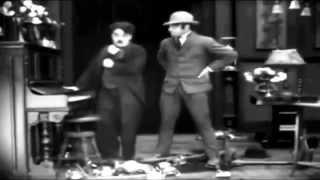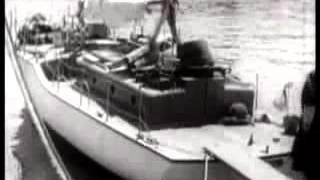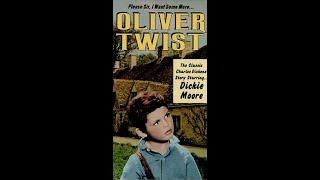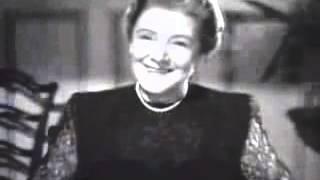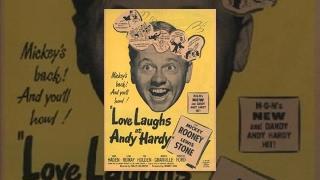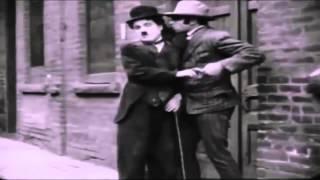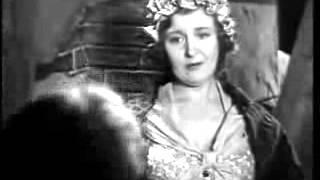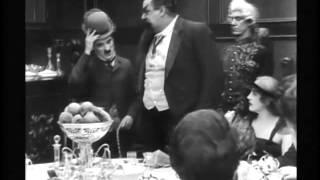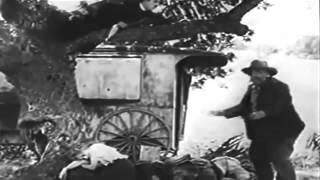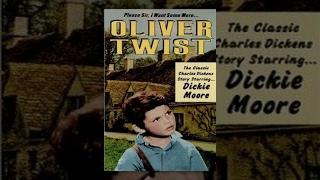Oliver Hardy in One Too Many (1916)
Description
Oliver Hardy starred with Billy Ruge in a series of comedies ( "One Too Many" is one) as "Plump and Runt." It was relatively short-lived, as they did 35 films together in 1915 and 1916, mainly one reels. It was the pinnacle of Ruge's career, and he disappeared from movies a few years later. Hardy moved on to bigger things (no pun intended). In this short, Plump (Oliver Hardy) receives an announcement of a coming visit by a rich uncle. He can't wait to meet the beautiful wife and children Plump has boasted about. Plump panics, as he has no family and he recruits bellboy Runt to help him cover this up. The story gets a little bizzare as Runt resorts to kidnapping and child trafficking to achieve his ends. In one scene, Runt approaches a strange woman on the street and tells her to "rent me your baby." She hands the child over with a smile.
Oliver "Ollie" Hardy (born Norvell Hardy) January 18, 1892 -- August 7, 1957) was an American comic actor famous as one half of Laurel and Hardy, the classic double act that began in the era of silent films and lasted nearly 30 years, from 1927 to 1955.
In 1910, a movie theater opened in Hardy's home town of Milledgeville, Georgia, and he became the projectionist, ticket taker, janitor and manager. A friend suggested that he move to Jacksonville, Florida, where some films were being made. In 1913, he did just that, and worked there as a cabaret and vaudeville singer at night, and at the Lubin Manufacturing Company during the day. It was at this time that he met and married his first wife, pianist Madelyn Saloshin. The next year he made his first movie, Outwitting Dad, for the Lubin studio. He was billed as O. N. Hardy, taking his father's name as a memorial. In his personal life, he was known as "Babe" Hardy, a nickname that he was given by an Italian barber, who would apply talcum powder to Oliver's cheeks and say, "nice-a-bab-y." In many of his later films at Lubin, he was billed as "Babe Hardy." Hardy was a big man at six feet, one inch tall and weighed up to 300 pounds. His size placed limitations on the roles he could play. He was most often cast as "the heavy" or the villain. He also frequently had roles in comedy shorts, his size complementing the character. By 1915, he had made 50 short one-reeler films at Lubin. He later moved to New York and made films for the Pathé, Casino and Edison Studios. He worked with Charlie Chaplin imitator Billy West and comedic actress Ethel Burton Palmer during this time. (Hardy continued playing the "heavy" for West well into the early 1920s, often imitating Eric Campbell to West's Chaplin.) In 1917, Oliver Hardy moved to Los Angeles, working freelance for several Hollywood studios. Later that year, he appeared in the movie The Lucky Dog, produced by ("Broncho Billy") Anderson and starring a young British comedian named Stan Laurel. Oliver Hardy played the part of a robber, trying to stick up Stan's character. They did not work together again for several years. Between 1918 and 1923, Oliver Hardy made more than 40 films for Vitagraph, mostly playing the "heavy" for Larry Semon
In 1924, Hardy began working at Hal Roach Studios working with the Our Gang films and Charley Chase. In 1925, he starred as the Tin Man in the Wizard of Oz. Also that year he was in the film, Yes, Yes, Nanette!, starring Jimmy Finlayson, who in later years would be a recurring actor in the Laurel and Hardy film series. The film was directed by Stan Laurel. He also continued playing supporting roles in films featuring Clyde Cooke and Bobby Ray. In 1926, Hardy was scheduled to appear in Get 'Em Young but was unexpectedly hospitalized after being burned by a hot leg of lamb. Laurel, who had been working as a gag man and director at Roach Studios, was recruited to fill in. Laurel kept appearing in front of the camera rather than behind it, and later that year appeared in the same movie as Hardy, 45 Minutes from Hollywood, although they didn't share any scenes together. In 1927, Laurel and Hardy began sharing screen time together in Slipping Wives, Duck Soup (no relation to the 1933 Marx Brothers' film of the same name) and With Love and Hisses. Roach Studios' supervising director Leo McCarey, realizing the audience reaction to the two, began intentionally teaming them together, leading to the start of a Laurel and Hardy series later that year. With this pairing, he created arguably the most famous double act in movie history.
Resources: ,
Help us caption & translate this video!
http://amara.org/v/GSrV/
Donate for our restoration project of historic material: http://www.leetchi.com/c/pool-von-interpathe-16620838
-~-~~-~~~-~~-~-
Please watch: "THE LAST MAN ON EARTH"
https://www.youtube.com/watch?v=AtZCKu-Swgo
-~-~~-~~~-~~-~-
